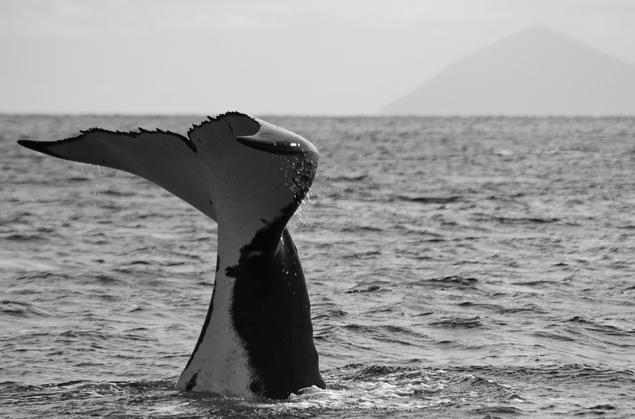The International Whaling Commission reviewed

As part of an expert panel of three, FNI Senior Policy Analyst Christian Prip has spent the past year conducting a review of the International Whaling Commission. The final report is now completed and made available for the public.
Notwithstanding the very different views on whaling within the International Whaling Commission (IWC), it should have strategic and prioritized directions like other international treaty bodies to establish more clarity, transparency, coherence and cost-effectiveness. Proactive, costed budgets and work plans are needed.
These are some of the conclusions drawn by Prip, together with panel experts David Sheppard, former Director-General of the Secretariat of the Pacific Regional Environment Programme (SPREP), and Fabio Hazin, Professor of the Universidade Federal Rural de Pernambuco in Brazil.
Access the report here.
Recommendations
The review, which was commissioned by the IWC in 2016 and commenced in April 2017, covers IWC institutions and governance arrangements. Thus, contested issues such as the feasibility of the whaling moratorium and scientific whaling are not included. However, the review offers recommendations on how to better deal with conflicts and disagreements at IWC meetings.
The review further highlights the IWC Scientific Committee as a premier  body worldwide regarding science on cetaceans, but also provides some recommendations on how its work could be better aligned with the IWC itself. Moreover, there are recommendations on streamlining the system of subsidiary bodies in the IWC in general to make it more effective. These include greater focus on the work of the Conservation Committee and possible improvements that could enhance the efficiency of other subsidiary bodies.
body worldwide regarding science on cetaceans, but also provides some recommendations on how its work could be better aligned with the IWC itself. Moreover, there are recommendations on streamlining the system of subsidiary bodies in the IWC in general to make it more effective. These include greater focus on the work of the Conservation Committee and possible improvements that could enhance the efficiency of other subsidiary bodies.
In need of better prominence and recognition
The review team also emphasises IWC as the global body charged with conservation of whales and management of whaling. Accordingly, as the leading global forum on cetaceans, its global significance needs better prominence and recognition. IWC should therefore partner with more international bodies and be actively involved in global ocean management cooperation towards UN Sustainable Development Goal 14 on conservation and sustainably use of the oceans, seas and marine resources.
The review was informed by a survey and interviews with a large number of IWC stakeholders. Furthermore, the review team assessed a number of other comparable multilateral treaty organisations to seek inspiration. In total, 39 recommendations are outlined in the review report, which will be discussed at the IWC’s meeting in Brazil September 2018.
